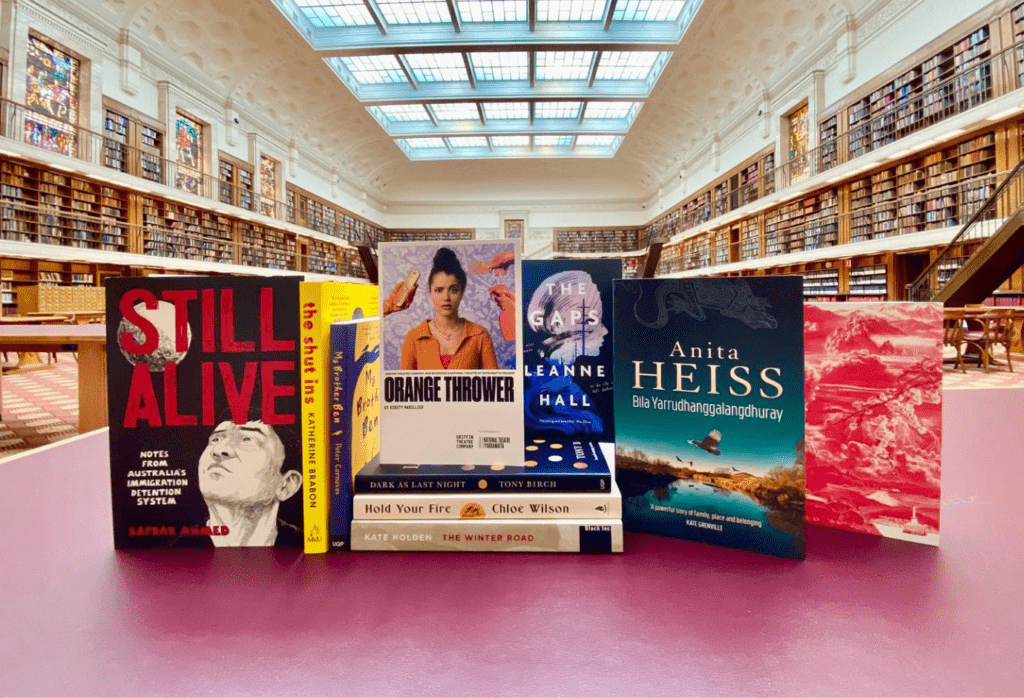This year’s NSW Premier’s Literary Awards has awarded six female authors prizes, spanning across a range of categories including Indigenous Writers’ Prize, People’s Choice Award and UTS Glenda Adams Award for New Writing.
The $295,000 total prize money makes the prize the richest state-funded literary awards in Australia. This year, a total of 30 judges assessed 746 entries across all the categories — its highest number on record.
Anita Heiss won the Indigenous Writers’ Prize ($30,000) for her book Bila Yarrudhanggalangdhuray: River of Dreams, a nineteenth-century drama set in Wiradjuri Country.
The judges said that Heiss “…brings human dimension to nineteenth-century history through the romantic tenderness between Wagadhaany and Yindyamarra.”
“Caring for each other and being as one with Country form the ethical bedrock of this novel, and Heiss’ own love for her Wiradyuri people and Country shines through.”
“The language and tone of Bila is not complex, but the author weaves the narration and dialogue together so that worlds of bilingual communication perfectly illustrate the complexity of the challenges that members of the Wiradyuri Nation overcome.”
Chloe Wilson won the UTS Glenda Adams Award for New Writing ($5,000) with her collection of short stories, Hold Your Fire.
The judges commended Wilson on the books’ “sharp and funny” stories, “… with confronting twists of a sometimes malevolent zeitgeist.”
“The stories in Hold Your Fire are as immediate as urban myths and as desirable as the best gossip: about faecal transplants, bat bites, loose leopards and body parts washed up on beaches,” the expressed.
“Chloe Wilson navigates with panache the gulf between social appearance and private thought. From a privileged viewpoint inside her characters’ heads, readers are treated to merciless perceptions (of bodies and motives and truthfulness) and often savage insights into the worlds of art, sport, law, medicine or wellness that her stories evoke.”
“This work cuts to a dark heart of contemporary existence and introduces a dazzling new voice in Australian fiction.”
The People’s Choice Award went to The Shut Ins by Katherine Brabon, a novel following a white Australian woman’s journey through Japan.
The novel is a “lyrical, quietly compelling exploration of the tensions between interiority and conformity through the Japanese concept of achiragawa, or ‘the other side’,” the judges praised.
“An unsettling, mesmerising work…that elegantly frames three narratives of ordinary Japanese people who are pulled, as she is, towards this surreal, dreamlike space that manifests as a rejection of contemporary societal or familial pressures and relationships.”
“The Shut Ins offers a vivid virtuosity and subtle realism to interrogate substrata of youthful alienation as a form of freedom and agency.”
Writer Kate Holden took out the Douglas Stewart Prize for Non-fiction ($40,000) for her sensational expose of the murder of environmental officer Glen Turner, The Winter Road: A story of legacy, land and a killing at Croppa Creek.
This “assured and accomplished book” sees its author “…animate multiple perspectives on questions of land, property and law in a manner that is surprising, compelling and timely,” the judges said.
“This is a virtuosic work of narrative non-fiction, a book that makes space for the complexity, contradictions and ugliness of the settlement of Australia.”
“Holden’s deeply-researched book leaves the clichés of the bush behind to produce a multi-faceted, account of life in regional Australia. And at a time when regional Australia is much discussed and little-understood, The Winter Road makes a vital contribution to the public sphere.”
The Ethel Turner Prize for Young People’s Literature ($30,000) went to Leanne Hall, for her novel, The Gaps.
“Leanne Hall immerses the reader in their world — their anxieties, collective grief and creative ambitions — and the result is a novel that not only feels authentic and lived in, but uniquely of this moment,” the judges said.
“The novel is deeply concerned with race, gender and privilege, and Hall’s deft touch keeps The Gaps from ever being didactic.”
“Alternating narrators, scholarship student Chloe and queen bee Natalia, allow Hall different vantage points from which to explore young womanhood.”
“The Gaps maintains a propulsive pace. There is a beauty and economy to Hall’s language use. Vivid pictures are painted with few words. This is an accomplished work that lingers with readers long after it ends.”
Kirsty Marillier took out the Nick Enright Prize for Playwriting ($30,000) for her coming-of-age play, Orange Thrower, which was performed at the Griffin Theatre Company and National Theatre of Parramatta earlier this year.
The “vital and deeply impressive piece of playwriting,” according to the judges, is set in the fictional, sunny suburb of Paradise, where a teenage girl is dealing with a new crush, strange neighbours and a mysterious person pelting oranges at her house every night.
“The characters are full of life and the plotting is precise,” judges said.
“On one hand, this is a simple, suburban coming-of-age story. But the play bounces off this familiar territory to gives us an utterly original story with characters that are engagingly idiosyncratic in a landscape unfamiliar on the Australian stage.”
“The play gives us comedy and mystery, budding sexuality and unrequited love, all wrapped up in what is really a loving tribute to the power and perseverance of South African women.”
“The play stands out through its enthralling transformation of the ordinary into the extraordinary, and its urgent, astute and magical examination of the self in the world. The play teems with life and insight. It is a major achievement.”
Other Award winners include Safdar Ahmed’s Still Alive: Notes from Australia’s Immigration Detention System, who took home Book of the Year ($10,000) & Multicultural NSW Award ($20,000), Tony Birch’s Dark as Last Night for the Christina Stead Prize for Fiction ($40,000).
Dan Disney’s poetry collection accelerations & inertias, for Kenneth Slessor Prize for Poetry ($30,000) and Peter Carnavas’ My Brother Ben, which won Patricia Wrightson Prize for Children’s Literature ($30,000).
The Betty Roland Prize for Scriptwriting ($30,000) was also won by Shaun Grant’s film NITRAM. Grant is most famous for making the explosive Australian film horror film, Snowtown.


